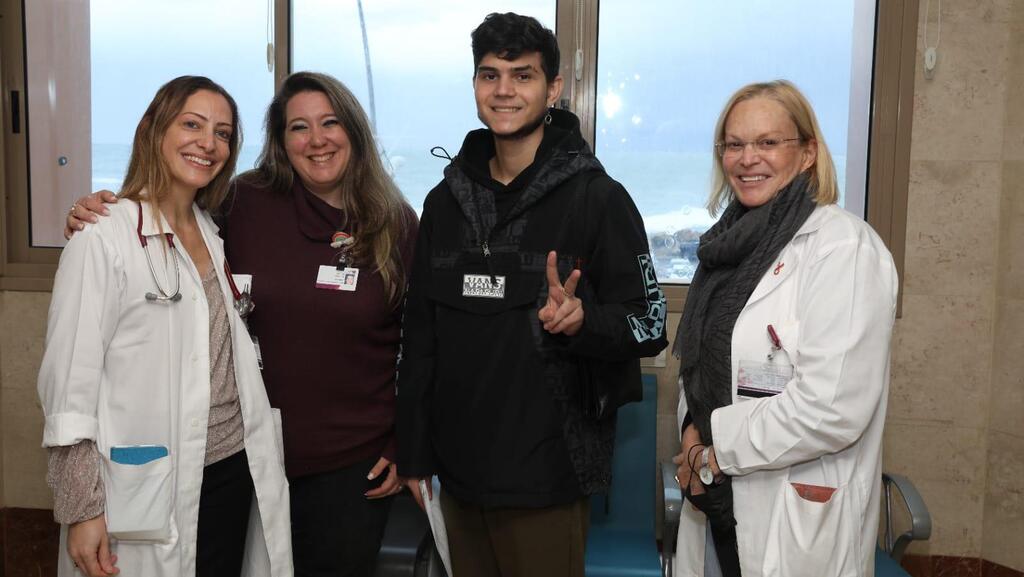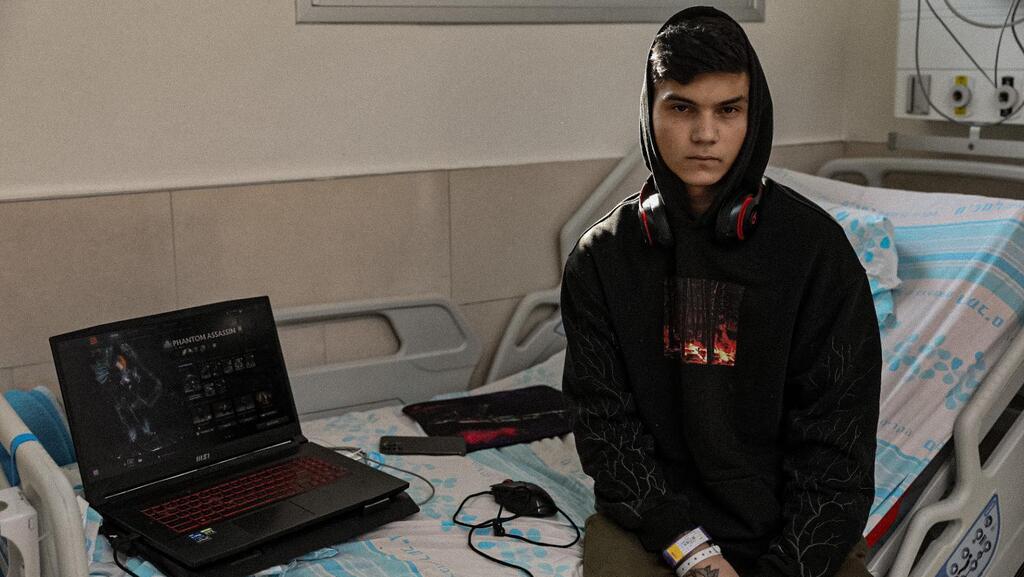Kalim Agracov found remission from cancer in an Israeli hospital after Russian physicians send him home to die and last week celebrated his 20th birthday.
He was treated for acute lymphoblastic leukemia at the Rambam Health Care Campus.
"Cancer was my enemy for the past three years, and I didn't believe I would beat it," the former resident of St. Petersburg said. "I was sentenced to death when the Russian doctors said there was no treatment, but in Israel, doctors saved my life, and after five months of treatment, my cancer went into remission and my life was saved," he said.
Agrakov immigrated to Israel last August after he was diagnosed. His father had already been living here for over a year and his mother and partner arrived as well to help with his recovery.
Agrakov is a musician. He is a songwriter and drum and bass player. He dreamt of becoming a rock star, but was forced to put his plans on hold when cancer hit.
After his initial diagnosis, Agrakov received treatment in a hospital in St. Petersburg. “The doctors gave up on me,” he said. “They told me that the treatments do not help and that they cannot find a matching bone marrow donor, so there’s nothing else to do. They just sent me home to die.”
When he told his father what the doctors had said, the idea to immigrate to Israel came up. "My father told me, 'it's your last shot of staying alive', so without any hesitation, I boarded a plane. In fact, I had wanted to immigrate to Israel but I was still studying and had a life in Russia," he said.
2 View gallery


Kalim Agrakov with the Rambam Health Care Campus doctors
(Photo: Rambam Health Care Campus)
A few days after his arrival, Agrakov met with Dr. Ofrat Beyar Katz, director of the cell therapy service at Rambam.
"He was exhausted and desperate from the treatments in Russia, which failed. we had a consultation here at the hospital and decided to tackle the disease with groundbreaking CAR-T treatment."
During the treatment, the "fighting cells", which are type T lymphocytes are collected from the patient. The cells are sent to a laboratory abroad where the CAR-T cells are produced, a kind of super-lymphocyte. And when they are inserted back into the patient's body, these lymphocytes cause a much more intense response when they meet with the diseased cells, while also enlisting help in the fight, from more cells around them," Dr. Katz said.
Agrakov said he was shocked by the treatment he received in Israel. "Not only did I get my life back, but I also became the best version of myself, he said.
"I had been very depressed and did not believe I stood a chance. I couldn't play music or write. I never would have believed that people whom I've never met before, would help me heal," he said.
"All I knew about Israel before arriving here, was that there was a war with the Palestinians and that Israelis go into the military after high school, he said. "Now I am learning more about this country, and started to learn Hebrew. I can already say that life in Israel is happier than in Russia," Agrakov said.
"I only hope that my girlfriend, Margaret who is supposed to return to Russia next month, will be given a permit to stay in Israel and start her process of immigration. She has been with me through many tough moments and is part of me" he said.


